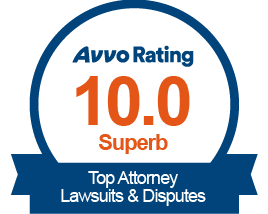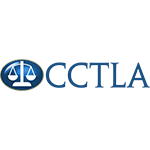Personal injury and civil justice attorney Brooks Cutter is a leading advocate for consumer justice and protecting the rights of the severely injured…
Eminent Domain Just Compensation
If your property is subject to eminent domain or condemnation, contact Cutter Law today – 1-855-967-1635. We are here to help you through this stressful process and ensure your rights are protected every step of the way.

When the government or an agent selects private property for a public project under eminent domain, they are supposed to select a location that offers the greatest public good at the least harm or inconvenience to the private individual.
The agency can take all of a property or part of a property but it should not take more than is needed for the project.
Furthermore, the US Constitution prohibits any agency from invoking eminent domain without providing the property owner with just compensation. Determining what just compensation for your property is, however, can be a complicated and contentious process.
An experienced attorney can help you ensure your rights are protected. While you may not be able to stop the eminent domain process, you can fight to make sure you get the maximum value you are owed for your property, rather than accepting a fraction of what you deserve.
Understanding eminent domain and just compensation are vital to obtaining the full value for your property.
Quick Links
Eminent Domain Overview
The Fifth Amendment of the US Constitution allows the government to take private property for public use but forces the government to offer just compensation for the property taken.
Just compensation is the amount of money it takes to make the property owner whole financially as though the property had not been taken.
Determining fair eminent domain compensation involves analyzing the land’s value, its highest and best use, and depreciation caused by the government’s actions, among other issues.
Local governments in California have been accused of taking personal property under the guise of public benefit, then giving that property to developers who then build expensive housing for residents who pay higher local tax rates.
Understanding Your Rights to Just Compensation
You have the right to have your property appraised to ensure you receive the highest value for your property.
You also have the right to appeal the necessity of taking your property, the project’s public benefit, the amount of property taken, the amount allocated for depreciation, the severance damages, the highest and best use of the property and the amount offered for your land.
The idea of just compensation is that you should be made whole, so that you are in the same position financially as you would be if the property were not taken from you.
If you feel the government or condemning property has not offered you just compensation for your property, you have the right to file an inverse condemnation to convince the court that your property is worth more. The government cannot invoke eminent domain without compensation.
Just compensation is not a precise standard. There are many factors that go into determining how much a property is worth, which is why the courts try to ascertain the fair market value to decide how much a property owner should be given when a property is taken under eminent domain.
Fair Market Value
The fair market value of a property or parcel of land is generally based upon what a reasonable buyer would offer to purchase the land, given a variety of factors. Among the factors included in determining fair market value:
- Property size
- Property accessibility
- Zoning
- Location
- Environmental issues
- Current level of development
- Current use
- Highest and best use (or potential use)
- Any unique characteristics
- Impact on the parcel as a whole
Unfortunately, eminent domain compensation examples do not include money for emotional factors, such as the stress of moving, emotional attachment to the property, or loss of a social connection due to moving.
The appraiser hired by the condemning agency should be independent and accredited, and familiar with local property values. The property owner has the right to be on-site at the time of the appraisal and can provide the appraiser with information that could affect the property’s value.
In Sacramento S. R.R. v. Heilbron (1909) the court established how property taken through eminent domain would be valued. “The fair market value of the property taken is the highest price on the date of valuation that would be agreed to by a seller, being willing to sell but under no particular or urgent necessity for so doing, nor obliged to sell, and a buyer, being ready, willing, and able to buy but under no particular necessity for so doing, each dealing with the other with full knowledge of all the uses and purposes for which the property is reasonably adaptable and available.” (California Code of Civil Procedure Section 1263.320)
Fair market value must also take into account two concerns:
- Has the project increased or decreased the property’s value and the value of the surrounding area?
- Has the project affected the property’s current use, and is the property currently being used for its highest and best use?
$23.5 Million
Settlement won for government fraud in a whistleblower case against one of the world’s largest medical device manufacturers
$240 Million
Settlement in a nationwide defective medical device case involving defective pacemakers and cardiac defibrillators against Boston Scientific and Guidant
$12.95 Million
John R. Parker recently handled a case against the medical device company, Biotronik, Inc. for claims that they defrauded state and federal government agencies.
$4.7 Million
Brooks Cutter and John Parker obtained the settlement on behalf of our whistleblower clients in a case involving government fraud.
Three Methods of Determining Property Value
There are typically three methods for determining a property’s value in the eminent domain compensation process.
Market Approach: Often used with residential properties, the property subject to eminent domain is compared with similar properties that have sold recently to determine the market value.
Income Approach: Often used for properties that produce income, this approach values the property based on the future projected income.
Cost Approach: Used if the other methods are not accurate or relevant, this is calculated by determining the cost of the land as though the property were vacant, and then the cost or replacing any existing structures. This approach also factors in the depreciation.
Highest and Best Use
When the agency makes an offer on your property, they must do so based on the highest and best use of the property, which might not necessarily be the way the property is currently being used. Highest and best use refers to the use of a property that would obtain the maximum value for that property if it were for sale.
For example, if you own land that has been zoned residential but the properties around have all been converted to commercial use, the agency may need to consider the value of your land if it were also to be converted to commercial use.
To minimize payment to the property owner, the agent might base their appraisal only on the property’s current use. Or they might undervalue the property’s highest and best use. Either way, the property owner has the right to appeal the condemning authority’s determination of a property’s highest and best use.
Severance Damages
Severance damages refer to any compensation not directly linked to the value of the land itself and any structures that the government has taken.
This can include any damage to your remaining land (where the government has taken only part of your land) that was caused by the taking. It can also include loss of access and a decrease in property value.
Obtaining an Appraisal
You have the right to have your own appraisal conducted by an independent appraiser who can assess the value of your property.
The information from such an assessment can be used in your negotiations and may be admissible in any court proceedings undertaken as part of the eminent domain process.
Why You Need an Eminent Domain Lawyer
A skilled and experienced eminent domain attorney can help you at all steps of the process, including ensuring you have experts willing to testify on your behalf, arranging appraisals and reviewing necessary paperwork. Among the condemnation issues we can help you with:
- Ensuring California’s eminent domain process has been followed properly
- Reviewing property appraisals, licenses, leases, and purchase offers
- Organizing your own appraisal
- Appealing the government’s offer
- Preparing for eminent domain litigation or inverse condemnation proceedings
Our attorneys have the skills and resources to manage your eminent domain claim. We will work with experts to ensure you receive the best possible outcome from your situation and to make the process as smooth as possible.
If your property is subject to eminent domain or condemnation, contact Cutter Law today – 1-855-967-1635. We are here to help you through this stressful process and ensure your rights are protected every step of the way.
Testimonials
Read More
“I’m so glad I chose Cutter Law to take my case. They are ethical, hardworking, capable and very willing to represent individual clients who are opposing companies.”
Read More
I would like to express my gratitude for the way you and your firm handled my lawsuit. At all times, I felt my interest was held in a very professional way. I was very satisfied with the settlement that was awarded to me. If the need ever arises, I would most assuredly recommend your firm to anyone.
Previous
Next
- by Brooks Cutter
- on
Celine Cutter is an associate and a graduate of the University of California, Berkeley School of Law (Boalt Hall). Celine works on a variety of cases including personal injury and accidents, products liability, mass torts,…
Schedule A Free Case Review
Our Office Locations
Sacramento Office
401 Watt Avenue Suite 100
Sacramento, CA 95864
Phone: 916-290-9400
Oakland Office
Cutter Law P.C.
1999 Harrison Street Suite 1400
Oakland, CA 94612










